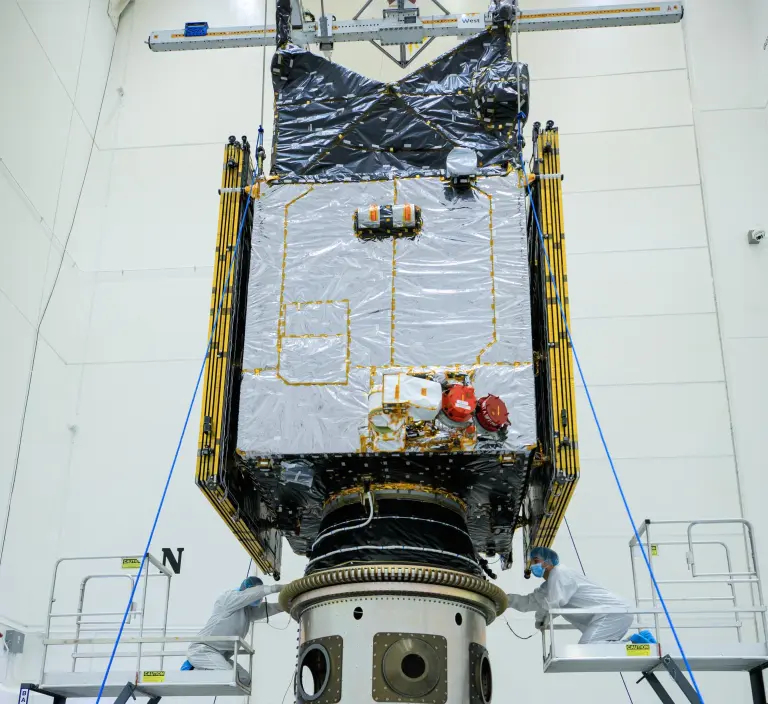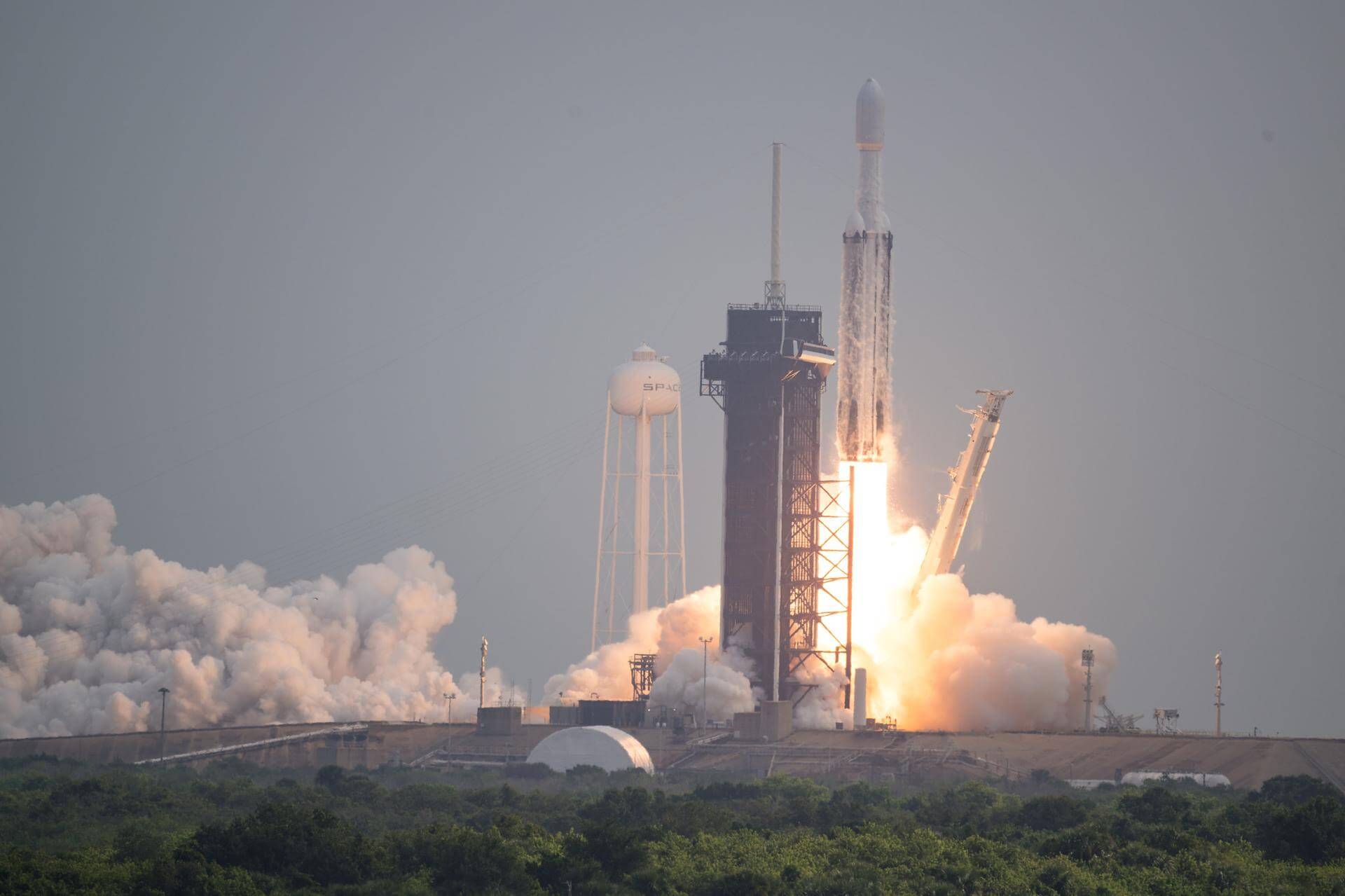
Press Event
Psyche Mission and Science Briefing
KSC, Florida Falcon Heavy | Psyche
Psyche Mission and Science Briefing on NASA TV with the following participants:
- Lori Glaze, Planetary Science Division director, NASA Headquarters
- Lindy Elkins-Tanton, Psyche principal investigator, Arizona State University
- Ben Weiss,Deputy principal investigator and magnetometer lead, MIT
- David Oh, chief engineer for operations, JPL
- Abi Biswas, Deep Space Optical Communications project technologist, JPL
Related Information
Falcon Heavy | Psyche
SpaceX | United States of AmericaKennedy Space Center, FL, USA
Oct. 13, 2023, 2:19 p.m.
Status: Launch Successful
Mission:
Psyche is a NASA interplanetary mission to visit the main belt asteroid of the same name, 16 Psyche. Spacecraft will take 4 years and one Mars flyby to reach the asteroid, which is of particular interest due to being comprised mostly of iron and nickel. Psyche is theorized to be a remnant of an early planet's core, and may offer insights into how solar system formed and evolved. The mission is led by Arizona State University, with NASA JPL being responsible for mission management and operations.
Heliocentric N/A B1065 - Flight Proven ( ) Landing Zone 2 B1079 - Maiden Flight Atlantic Ocean B1064 - Flight Proven ( ) Landing Zone 1Falcon 9
Starlink Group 10-41
Space Launch Complex 40 - Cape Canaveral SFS, FL, USAA batch of 29 satellites for the Starlink mega-constellation - SpaceX's project for space-based Internet communication system.
Falcon 9
Starlink Group 17-23
Space Launch Complex 4E - Vandenberg SFB, CA, USAA batch of 25 satellites for the Starlink mega-constellation - SpaceX's project for space-based Internet communication system.
Electron
That's Not A Knife (DART AE)
Rocket Lab Launch Complex 2 (Launch Area 0 C) - Wallops Flight Facility, Virginia, USAPayload is a scramjet-powered hypersonic vehicle developed by by Australian company Hypersonix.
Falcon 9
Starlink Group 6-108
Space Launch Complex 40 - Cape Canaveral SFS, FL, USAA batch of 29 satellites for the Starlink mega-constellation - SpaceX's project for space-based Internet communication system.
Falcon 9
Starlink Group 17-26
Space Launch Complex 4E - Vandenberg SFB, CA, USAA batch of 25 satellites for the Starlink mega-constellation - SpaceX's project for space-based Internet communication system.
Falcon 9
Starlink Group 6-110
Space Launch Complex 40 - Cape Canaveral SFS, FL, USAA batch of 29 satellites for the Starlink mega-constellation - SpaceX's project for space-based Internet communication system.
Falcon 9
Starlink Group 6-104
Space Launch Complex 40 - Cape Canaveral SFS, FL, USAA batch of 28 satellites for the Starlink mega-constellation - SpaceX's project for space-based Internet communication system.
Falcon 9
Starlink Group 17-25
Space Launch Complex 4E - Vandenberg SFB, CA, USAA batch of 25 satellites for the Starlink mega-constellation - SpaceX's project for space-based Internet communication system.
Falcon 9
Starlink Group 10-36
Space Launch Complex 40 - Cape Canaveral SFS, FL, USAA batch of 29 satellites for the Starlink mega-constellation - SpaceX's project for space-based Internet communication system. First Starlink laun…
Falcon 9
Starlink Group 6-103
Space Launch Complex 40 - Cape Canaveral SFS, FL, USAA batch of 29 satellites for the Starlink mega-constellation - SpaceX's project for space-based Internet communication system.




